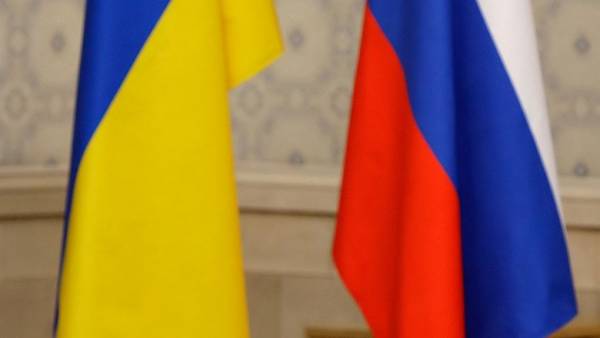
So he & nbsp; justified why, in & nbsp; his opinion, the British Supreme Court should refuse Ukraine & nbsp; consideration of its reason & nbsp; '' coercion '' from the & nbsp; Russian side. According to the & nbsp; terms of Ukrainian Eurobonds, disputes over them are considered in & nbsp; an English court.
RBC monitored & nbsp; hearings in & nbsp; British court, which lasted about & nbsp; five hours. According to & nbsp; their & nbsp; results, the Supreme Court will make a decision on the & nbsp; dispute (this will happen in & nbsp; a few months, RBC described the outcome scenarios earlier).
There is a fundamental difference between physical threats to an individual and “threats” (political, economic) of one state to another, Howard emphasized.
In & nbsp; while the former can be considered in the & nbsp; national court, the latter cannot & nbsp; be the subject of such consideration, he said at the & nbsp; hearing.
“ Alleged illegality in the & nbsp; framework of international law is not & nbsp; part of English law '', & nbsp; & mdash; the lawyer believes. “ Let's say the President of Russia or his bodyguard is holding a gun (in & nbsp; meaning a pistol) at & nbsp; the head of the President of Ukraine & nbsp; & mdash; it will be a direct threat to an & nbsp; natural person, and & nbsp; English law will treat & nbsp; this as a threat of murder. However, you & nbsp; not & nbsp; can interpret interstate relations when, for example, one state explicitly or implicitly threatens the borders of another state as a threat to individuals & raquo;, & nbsp; & mdash; cited the example of Howard.
Threats imputed to Russia by the Ukrainian side to block bilateral trade or cut off gas supplies to Ukraine are, by definition, international acts of a sovereign state that are not subject to the jurisdiction of national courts, the lawyer said.
According to & nbsp; he said, the decision of the Supreme Court of Great Britain in & nbsp; another case & nbsp; & mdash; British travel agency Times Travel against Pakistani airline Pakistan International Airline Corp., where the agency was forced to sign a new agreement with & nbsp; the airline under threat of closing the business, narrowed the & nbsp; English courts' opportunities to & nbsp; interfere in & nbsp; interstate disputes.
In & nbsp; 2020, the Supreme Court postponed the proceedings on the & nbsp; dispute between Russia and & nbsp; Ukraine, citing & nbsp; that & nbsp; wants to first consider the & nbsp; Pakistani & raquo; a case in & nbsp; which also & nbsp; raised the question of & nbsp; the application of the doctrine of compulsion (duress). The argument about & nbsp; coercion is key to & nbsp; Ukraine's position, as it claims that & nbsp; sold Eurobonds to Moscow allegedly under pressure, including & nbsp; due to & nbsp; Russian threats and & nbsp; trade sanctions.
In the & nbsp; verdict in & nbsp; the Times Travel case, the court ruled that & nbsp; the doctrine of economic coercion could be applied and & nbsp; the contract was invalidated only in & nbsp; very limited circumstances & nbsp; & mdash; in & nbsp; in particular, for & nbsp; this behavior of the defendant must be recognized as “ reprehensible '' (reprehensible).
To assess Russia's actions as “socially and morally” reprehensible, a British court must express an opinion on international relations, which it has no right to do, Howard said.
QC Bankim Tanki, who represents Ukraine's interests, argued at the & nbsp; hearing that & nbsp; Moscow's threats, which forced Ukraine to place bonds in & nbsp; Russia's favor, were not & nbsp; & nbsp; ordinary commercial threats. Earlier, Kiev told British judges that & nbsp; “ was forced to issue Eurobonds under the insurmountable pressure of Russian threats to & nbsp; the territory, economy and & nbsp; citizens of Ukraine. '' These threats materialized within & nbsp; a few months after the placement of the papers, when Russia “ illegally invaded & nbsp; Crimea and & nbsp; eastern Ukraine '', Ukrainian lawyers argued.
“ No English court will & nbsp; enforce a contract concluded under & nbsp; English law under the influence of a threat from a foreigner to kill or injure another foreigner outside of England '', & nbsp; & mdash; indicated Tanki.
Russia at & nbsp; the end of 2018 filed an appeal with the & nbsp; Supreme Court of Great Britain, hoping that & nbsp; the court will finally reject Ukraine's argument about & nbsp; “ coercion. '' Ukraine also & nbsp; filed an appeal to the & nbsp; Supreme Court & nbsp; & mdash; on the & nbsp; decision of the previous instance, which denied Kiev the & nbsp; right to & nbsp; a comprehensive judicial review of the rest of her & nbsp; arguments. Among them were, for example, allegations that & nbsp; the Minister of Finance of Ukraine in & nbsp; December 2013 did not & nbsp; had the right to give permission to & nbsp; the issue of these bonds and & nbsp; that & nbsp; Kiev has the right not & nbsp; to return the debt in & nbsp; as a legal countermeasure for & nbsp; violation of Russian norms international law ('use of force', 'interference in & nbsp; internal affairs' of Ukraine).